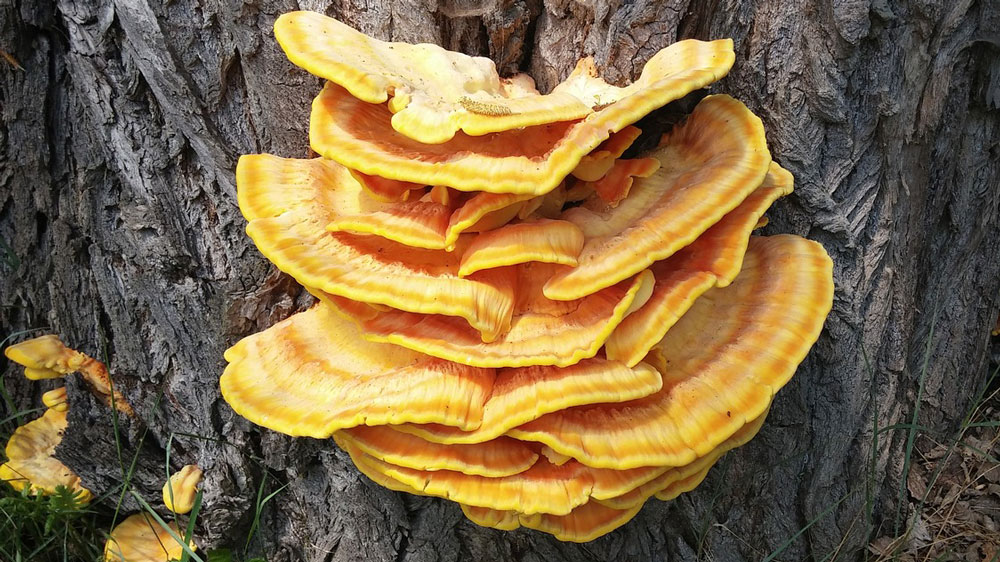- Integrative Health Group1502 Allen St
Springfield, MA 01118413-782-9800 - Acupuncture of Greater Hartford & Springfield35 Nod Road
Avon, Connecticut 06001860-836-1068 Tai Chi Links
-
Latest Articles:
- • 10 Family-Friendly Activities Perfect for Spring •
- • 3 Easy Spring Dinner Ideas for a Fresh and Flavorful Season •
- • 5 Tips to Boost Your Spring Wellness Routine •
Acupuncture and Tai Chi in Hartford CT, Springfield MA
Health Well News
Herbal Tonics for Fall
Fall is a time of transition for nature, as well as our own bodies. In Traditional Chinese Medicine (TCM), each season is associated with specific organ systems. During the autumn months, the lung and large intestine energetic meridians are in control. It is extremely important to improve lung function during the fall months to allow for an easy transitional period and to prepare for the upcoming winter months.

The lung system in TCM is responsible for the body’s immunity or Wei Qi (pronounced “way chee”). When the Wei Qi becomes depleted or deficient, the body becomes ill. And during the fall months, when the weather is transitioning and temperatures are falling, it becomes vital to take precautions so the immune system and Wei Qi don’t fail our bodies, allowing disease to take root. The most common diseases of the fall season are allergies, colds and the flu. But there are ways to boost or tonify the Wei Qi.
Traditional Chinese Medicine utilizes many different modalities to help keep the body free from disease. These modalities include acupuncture, moxibustion, nutrition, qi gong, tai chi and herbal formulations. It is these herbal formulations we are discussing today.
Chinese herbal medicine has been used for millennia to keep the body free from disease and to help remove disease when it attacks. Herbs can be used alone or combined to make stronger herbal formulas. And while not all of the herbs we will discuss here are specific to TCM, they can be found and utilized easily.
Astragalus or Huang Qi: This herb is a favorite among TCM practitioners. It is an excellent tonic herb, as well as an adaptogen that can be used year-round to ensure good health. In TCM, it is considered to be one of the best tonic herbs available, especially for those who are already fatigued. Specifically, this herb is known for its ability to strengthen the Wei Qi.
Cordyceps or Dong Chong Xia Cao: This herb is known to enrich the bone marrow, where white blood cells are made. White blood cells are a large part of the immune system and they specifically fight off infections in the body. In this way, Dong Chong Xia Cao definitely plays a role in tonifying the Wei Qi. This herb is also used to replenish the adrenal glands when there is adrenal fatigue. When the adrenals are fatigued, the whole body is running at a deficient level.
Reishi Mushroom or Ling Zhi: This herb is sometimes called the “great protector” because it guards the body against the detrimental effects stress can have on the physical body. When taken regularly, it has been shown to improve immunity, while also calming the nerves. Specifically, it can help inhibit tumor growth in both breast and prostate cancer.
As you can see, herbs can be very beneficial and help keep the body free from illness. The herbs mentioned above are just a few examples that would be good to have around during the season of fall to help boost your immune system.
Acupuncture and Hay Fever
Hay fever, which is medically termed allergic rhinitis, is an ailment that affects nearly 20 million people in the United States, according to the Centers for Disease Control. Hay fever is actually an allergy caused by pollen or dust, which causes the mucous membranes of the eyes and nose to become itchy and inflamed, resulting in sneezing, a runny nose and watery eyes. Hay fever is the fifth most common disease in the United States and it tends to affect people during three out of the four seasons in the year. There are multiple over-the-counter medications to treat hay fever, including antihistamine sprays, eye drops and nasal corticosteroids.

The problem with most of these suggested treatment methods is they all have adverse side effects. Traditional Chinese Medicine (TCM), however, can treat the symptoms without any harsh side effects. A TCM practitioner has a whole host of modalities in their toolbox that can help the hay fever sufferer. This includes acupuncture, herbal formulas and nutritional counseling. When these tools are used in conjunction, studies have shown hay fever sufferers may experience a significant drop in their symptoms.
According to TCM theory, hay fever is usually attributed to a deficiency of the body’s essential energy or Qi (pronounced “chee”), coupled with an invasion of wind heat in the lungs. But every patient is different and symptoms may differ from person to person. For most hay fever sufferers, TCM treatments will aim to open the lungs and expel the wind heat.
Acupuncture is a holistic medical technique that uses hair-thin solid stainless steel needles to stimulate acupressure points on the body. These acupressure points can do many different things, including reducing inflammation, decreasing lacrimation (watery eyes) and relieving sneezing. According to one study done by the Lishui Hospital of Traditional Chinese Medicine, when acupuncture was used as a standalone therapy, the participants reported a nearly 67 percent decrease in their symptoms. When herbal formulas were added, that efficacy rate increased to over 71 percent.
There are several herbal formulas that can be used to treat hay fever. The one used, will depend on the specific symptoms of the patient. However, the base formula frequently used is known as Cang Er Zi San. The herbs in this formula can unblock the sinuses and alleviate pain. The biggest difference between over-the-counter remedies and TCM herbal formulas is the formulas can be changed as the person’s symptoms change.
Acupuncture improves the Qi throughout the body by stimulating the body’s own internal regulating systems. This will then allow the body to heal itself, by strengthening the body’s resistance and regulating the antigen/antibody reaction created by the body when it encounters pollen or dust that may trigger the hay fever attack. And since hay fever is attributed to having a weak immune system in TCM, the herbs usually given will help support and strengthen the person’s immunity.
This is also where nutritional counseling may play a part because many foods can create phlegm and dampness that exacerbate a person’s symptoms. Things like dairy and excess sugar may need to be avoided during the flare-ups. Also foods that generate or create heat are usually not advised. However, drinking plenty of water is always a good idea.
We can help determine if you are a good candidate for treatments and also help you to avoid suffering in the first place, as this medicine can and should be used as preventive medicine.
Acupuncture and Maintaining Healthy Skin
Health is something most people strive for every single day. Our skin is the outward expression of how healthy or unhealthy we are. And while many people believe makeup is the ultimate way to enhance your appearance, many times it is only hiding underlying health issues. Vanity is a virtue that can be quite unbecoming, expensive and time consuming. In the United States alone, people are expected to spend nearly $11 billion on skin care by 2018, according to Global Cosmetic Industry Magazine. And all of the money being spent is out of pocket, meaning technically it is considered a luxury item and not a necessity.

Healthy skin is something that can be representative of much more taking place inside the body. When our skin is dry, cracked, dull, lackluster or covered by acne, it can indicate serious imbalances within the body. This is where things like acupuncture and Traditional Chinese Medicine can be very beneficial. Cosmetic acupuncture is considered the truest form of anti-aging medicine because it improves the look of the skin, while still optimizing overall health. Beauty and health are inseparable and therefore, they should be addressed together.
Cosmetic acupuncture still follows all the same principles of Traditional Chinese Medicine. Acupuncturists specializing in cosmetic acupuncture do a thorough intake and health assessment to determine any internal imbalances. And while the ultimate goal for the patient is to have healthier looking skin, the acupuncturist will treat according to the internal imbalances. Once these imbalances are corrected, the skin will become healthier. This is not to say that cosmetic acupuncturists don’t directly treat the visible skin issues, because they do.
Cosmetic acupuncture utilizes tiny sterile needles placed in and around areas of the skin that may be dull, saggy, wrinkled, inflamed or even have some sort of deformity. The insertion of these needles will do a couple of things that help the skin to heal. First, the needles will activate collagen production in areas that have become sunken or wrinkled. This will help to fill in those areas and decrease the lines. Secondly, the needles will stimulate an immune response. This triggers the body to send immune cells to the affected areas, thus signaling molecules like growth factors and cytokines, to repair the skin.
However, cosmetic acupuncture cannot be relied upon completely to help the skin repair and replenish. Most cosmetic acupuncturists will also coach their patients about proper diet and other health issues that may be contributing to the appearance of the skin. For instance, did you know excessive stress can actually cause us to age faster and look older? This is another way that acupuncture can help keep the skin healthy. When a person is extremely stressed, the body reflects it through the skin. Stress can cause breakouts due to an increase in hormones, making the skin oily and decreasing the body’s defenses against bacteria. This is why adequate sleep is so important.
Improper diet is another area a cosmetic acupuncturist may discuss and one that is vital for healthy skin. Things like green tea, vitamin C and Omega-3 fatty acids are wonderful items to add to the daily diet if you are trying to keep the skin healthy. Green tea is full of antioxidants and anti-inflammatory components that help soothe and reduce skin redness. Vitamin C has been shown to increase collagen production, especially when applied topically. But taking Vitamin C internally also increases antioxidants that keep the skin healthy. Lastly, Omega-3 fatty acids, help keep the skin looking youthful, while retaining its elasticity.
Cosmetic acupuncture is a quickly growing sector of Traditional Chinese Medicine. If you are dealing with any kind of skin issue and looking for a natural way to treat it, finding a licensed acupuncturist would be a great place to start. Your skin and body will thank you.

